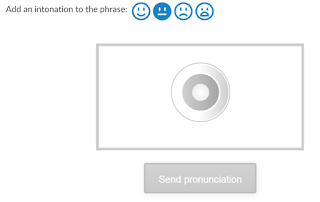Queen Anne is a quiet, mostly residential neighbourhood in Seattle - a little ostentatious on the borders to Lower Queen Anne, where Kerry Park is situated (see below), and gradually becoming more modest as you near the Fremont Cut, a river that flows into Seattle's Lake Union. Still, expect to see plenty of boats alongside the wood-clad homes.
I loved the peaceful feel to Queen Anne. Whilst we mostly only walked through it, down Queen Anne Ave. N. on our way to Fremont, We were immediately struck by a sense of community to the place. Queen Anne is generously populated with signature cafés, tea-rooms and restaurants that we'd have been sure to frequent with more time to spare. I detail a few below that caught my eye, to give an idea of what to expect:
Storyville Coffee
2128 Queen Anne Ave. N.
photo from:
Hilltop Ale House
2129 Queen Anne Ave. N.
photo from:
Nana's Mexican Kitchen
1825 Queen Anne Ave. N.
photo from:
Cederberg Tea House
1417 Queen Anne Ave. N.
photo from:
Queen Anne Books
1811 Queen Anne Ave. N.
photo from:
As for those places that we did find time to explore, there are two in Queen Anne that I would advocate as essential for anyone visiting the area:
Kerry Park
211 W. Highland Dr.
Those famous skylines that you know of Seattle from iconic shows such as Frasier can be seen from Kerry Park. As such, it is a fantastic location to view the sun setting over Seattle. If you're a photography enthusiast wanting that perfect shot, though, I'd recommend arriving early though, as the park is small and does get a little busy towards sunset. I can't take credit for the photo below, and it was taken by Shaun Joyce Photography. I will, however, take credit for holding his spot as he ran back to the hotel for a better lens.
We actually visited Kerry Park a couple of times, as it was not too far from our hotel in Lower Queen Anne. That said, it is separated from Lower Queen Anne by an impressively steep hill, so be prepared to feel the burn in seeking this vista. Shaun certainly did! That said, the pay-off is well worth it.
Blue Highway Games
2203 Queen Anne Ave. N. | www.bluehighwaygames.com
As previously mentioned, we were on somewhat of a mission as we walked through Queen Anne. Our intention had been to walk as far as a bus stop, which we deemed was reasonable as Queen Anne Ave. N. is a busy enough road and leads pretty much directly to the bridge over into Fremont - our destination for that morning. The trouble was that Queen Anne Ave. N. proved to be a one-way road, and since that walk to the other side of the bridge works out at a minimum of 3.5km, we had to make it brisk to ensure that we'd see enough of Fremont when we eventually got there.
Nonetheless, we were drawn to stop off a while in Blue Highway Games. We instantly fell in love with it.
Happily, establishments such as Blue Highway Games are starting to appear now in the UK, but at the time we had never seen anything like it: an extensive shop front showcases not just the games, but also laminated copies of their rulebooks to help you judge on more than the box cover, coupled with a comfortable library corner where you could sit down and try before you buy. They also serve drinks and snacks, giving a gaming café experience, and the friendly owners frequently host gaming evenings. At the time they were displaying an ongoing leaderboard for their Carcassonne Championship. At the time my overwhelming feeling was "I wish I lived here - what a great way to meet people and have fun!": A true embodiment of the spirit that emanates from Queen Anne's charming neighbourhood.
Fremont – coming soon
Belltown – coming soon
Downtown Seattle – coming soon
Pioneer Square – coming soon


















